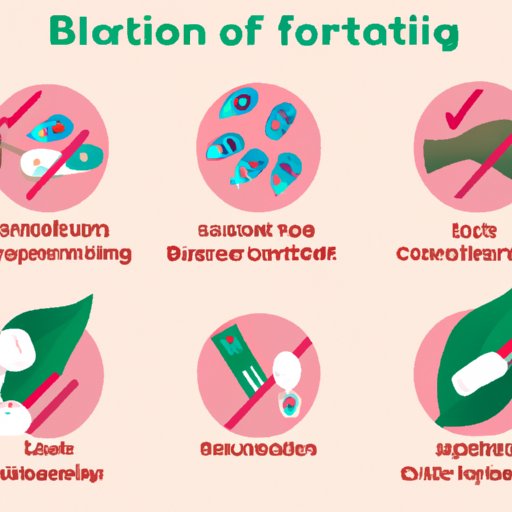
Can You Ovulate on Birth Control?
Birth control is a widely used method of preventing pregnancy. However, in some cases, women may ovulate while using birth control, leading to unwanted pregnancies. It is essential to understand the risk of ovulation while on birth control and how to detect ovulation to ensure effective prevention of pregnancy. In this article, we will examine the phenomenon of ovulation while on birth control and ways to detect it.
Understanding the Effectiveness of Birth Control: Is Ovulation Possible?
There are different types of birth control options available for women, including hormonal and non-hormonal methods. Hormonal methods like the pill, patch, and vaginal ring work by releasing synthetic hormones that prevent ovulation, while non-hormonal methods like the copper IUD works by creating an environment that is hostile for sperm. However, even with the best birth control methods, there is still a small chance of pregnancy.
Ovulation while on hormonal birth control is uncommon but can occur. Estrogen in hormonal birth control pills suppresses FSH and LH hormones that signal ovulation. When a woman misses a pill or takes it late, the estrogen levels in the body decrease, allowing the FSH and LH hormones to increase, leading to ovulation. The chances of ovulating increase with missed pills, taking antibiotics, or vomiting due to sickness.
The Risks and Challenges of Ovulating on Birth Control
While ovulating on birth control may not be a significant problem in some cases, it can pose some health risks and challenges to the individual. Women who ovulate while on birth control are at risk of getting pregnant and may need to stop using the current birth control method or consider an alternative. Women who become pregnant while on birth control may experience complications that could be harmful to their health and the baby. Ovulating while on birth control may also cause changes in hormones, leading to mood swings, cramps, or acne breakouts.
How to Detect Ovulation While on Birth Control
Detecting ovulation while on birth control may be challenging due to hormonal changes caused by the birth control method. However, some methods can help track ovulation despite being on birth control. These methods include tracking basal body temperature, using ovulation test strips, and monitoring cervical mucus. Tracking basal body temperature involves checking body temperature each morning to detect temperature changes that occur during ovulation. Ovulation test strips detect the presence of luteinizing hormone in urine and are reliable for detecting ovulation. Monitoring cervical mucus variations can also help detect ovulation.
Unexpected Ovulation: An Insight into Birth Control Failure
Birth control can fail due to various reasons, including incorrect use, missing pills, or drug interactions. In cases where hormonal birth control fails, ovulation can occur, leading to pregnancy. It is essential to understand what happens when ovulation occurs while on birth control. In some cases, ovulation may occur without the release of an egg or the egg becomes unfertilizable due to changes in the cervical mucus. However, there is still the possibility of getting pregnant when ovulating while on birth control. It is, therefore, crucial to use a backup contraceptive method when ovulating while on birth control or consider alternative natural birth control methods.
Natural Alternatives to Hormonal Birth Control
In addition to hormonal birth control, several natural methods can help prevent pregnancy without the use of drugs. These methods include the rhythm method, the cervical mucus method, and the basal body temperature method. These methods rely on tracking the menstrual cycle and fertility signs to identify the fertile period and avoid sexual intercourse during that period. While these methods may not be as effective as hormonal birth control, they are a natural alternative that can be a viable option for some women.
Ovulating on Birth Control: Myths vs Facts
There are several myths surrounding ovulation while on birth control that are not entirely accurate. One myth is that if a woman is on birth control, she cannot get pregnant. This is not true, as birth control only reduces the risk of getting pregnant but does not eliminate it entirely. Another myth is that ovulating on birth control is always a sign of a contraceptive failure. While ovulating while on birth control increases the risk of getting pregnant, it is not always a sign of failure.
Conclusion
In conclusion, ovulation while on birth control is rare, but it can occur, leading to unwanted pregnancies. It is crucial to detect ovulation while on birth control and be aware of the risks and challenges that come with it. Women who ovulate while on birth control may consider natural birth control methods or speak to their healthcare provider to identify alternative birth control options. Effective communication with healthcare providers is vital in ensuring effective birth control measures and avoiding unwanted pregnancies.




